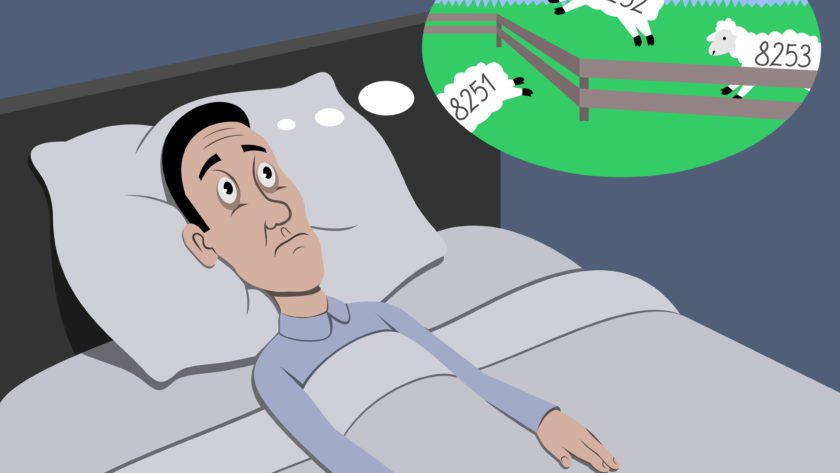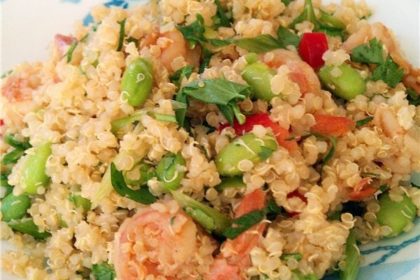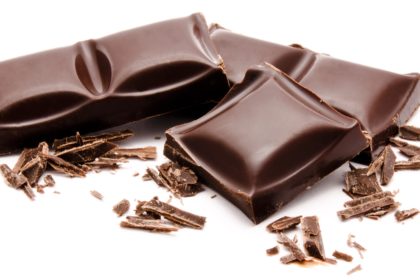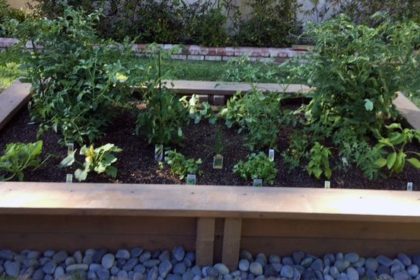In my last KRON 4 health segment, I talked about the foods that disrupt falling asleep and staying asleep. Check out What NOT to Eat for Better Sleep. Chronic sleep deprivation leads to serious health problems, not to mention, feeling lethargic, unmotivated, and irritable all day long.
Health Problems Caused By Lack of Sleep and Poor Sleep Quality
Insomnia is associated with increased prevalence of medical disorders, including hypertension, type 2 diabetes, exacerbation of chronic pain, and a decline in cognitive function. Other health complaints include:
- Foggy head and forgetfulness
- Cardiovascular problems
- Mood swings, anxiety, unhappiness
- Accidents (tripping, falling, dropping things)
- Weakened immune system
- Weight gain from “comfort eating” (comfort foods are typically high in unhealthy fats and/or sugar)
Here’s a rundown of the foods to eat that promote better sleep and why.
Foods to Eat Before Bedtime
1. Fiber (e.g., barley, oats, black/brown rice, quinoa, legumes, fruits, vegetables) – Fiber helps promote restorative deep sleep. High fiber foods don’t cause blood sugar spikes. These blood sugar surges decrease the release of melatonin (the hormone that regulates your sleep-wake cycle) and increase the release of cortisol and adrenaline (stress hormones). See What NOT to Eat for Better Sleep.
NOTE: Difficulty falling asleep and staying asleep affects 35% of adults. The average American consumes about 13 gm of fiber per day, which is about one-third of what’s needed for optimal health.
2. Magnesium-rich foods (e.g., nuts, seeds, spinach, beans, lentils, bananas) – Researchers found that magnesium increases melatonin concentration and helps you stay asleep. Pumpkin seeds, chia seeds, almonds, and spinach are the top 4 foods that are high in magnesium (in that order). Watch the video: How to Make 5-Minute Almond Milk.
NOTE: My recipe for a restorative sleep-inducing almond milk is made with pulverized almonds, water, dates, and Mexican vanilla. Unlike store-bought almond milk, my recipe has no age-promoting phosphates, TMAO-producing lecithin, and uses dates to naturally flavor and boost magnesium and phytonutrient content. Dates are packed with antioxidants. In fact, dates contain the highest amount of antioxidants of any fruit due to their exposure to harsh elements when grown.
3. Kiwi – Studies show eating 1-2 medium kiwis one hour before going to bed may help you fall asleep faster and stay asleep longer. Make my Sleepytime Kiwi Slurry for a sleep-inducing snack.
4. Tart cherry juice (unsweetened) – Studies show pure tart cherry juice and its active ingredients may help improve insomnia because it:
- Contains melatonin and tryptophan.
- Increases tryptophan availability, which helps make more serotonin. (Serotonin is the “feel-good hormone” associated with happiness, focus, and calmness.)
- Reduces inflammation.
The Tryptophan-Serotonin-Melatonin Circle
Tryptophan is an essential amino acid found in tryptophan-containing foods. Serotonoin is not found in foods, but is made from tryptophan. Without seratonin, the brain cannot make melatonin.

5. Chamomile tea – Stimulates the release of glycine, an amino acid that relaxes nerves and muscles. Chamomile can be a good alternative to prescription hypnotic sleeping medications, so steep your chamomile tea in warmed tart cherry juice for a calming two-fer. The body can make glycine on its own, or it can be found in foods.
6. Soy (e.g., edamame, soy milk, tofu, tempeh) – Studies show isoflavones can help you sleep longer with better sleep quality. Soy is the richest source of isoflavones (phytochemical),
7. Pistachios – These popular nuts are a great source of vitamin B6. This vitamin is essential for producing melatonin and serotonin, both of which help you get better sleep. Pistachios are also a good source of fiber (for deep sleep) and magnesium (for staying asleep).
NOTE: The healthy (unsaturated) fats in nuts and nut butters increase serotonin levels vs saturated and trans fats like butter, cheese, French fries, chips, and other high-fat snacks that disrupt digestion and have been shown to disrupt sleep-wake cycles.
![]() Karen’s Fit Tip: Remember, to re-wire your brain and body to sleep faster, deeper, and longer, it’s not just about eating a certain food on a particular day. Optimal sleep nutrition is multifaceted and emcompasses what you eat (and don’t eat) and how you feed your body as part of your overall lifestyle.
Karen’s Fit Tip: Remember, to re-wire your brain and body to sleep faster, deeper, and longer, it’s not just about eating a certain food on a particular day. Optimal sleep nutrition is multifaceted and emcompasses what you eat (and don’t eat) and how you feed your body as part of your overall lifestyle.





